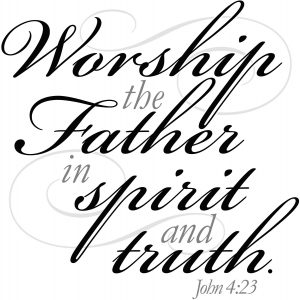Choices change our lives…
By Barbara Dahlgren

Come Thou Fount of Every Blessing is one of my favorite songs. The first two lines read:
Come thou fount of every blessing, tune my heart to sing thy grace.
Streams of mercy never ceasing call for songs of loudest praise.
Those thoughts are profound and seem to represent the contemporary worship music movement so prevalent in churches today. “Tune my heart to sing” and “songs of loudest praise” seem like phrases tailor-made for today’s contemporary Christian. It’s hard to believe they were written in the 1700s.
The author, Robert Robinson, was born in the mid-1700s. His dad died when he was eight and for years he was associated with a notorious gang of hoodlums in London. According to Kenneth W. Osbeck’s book 101 Hymn Stories, at the age of seventeen Robert and his friends went to a church meeting with the purpose of scoffing openly at the preacher. However, the Lord had other things in mind because that night Robert Robinson became a Christian. He went on to become a minister. He wrote Come Thou Fount of Every Blessing at the tender age of twenty-three. Although his words were the contemporary thoughts of his time, by today’s standards this song is classified as a traditional hymn.
Worship music is a volatile topic in many churches. Older members tend to like traditional hymns while younger people lean more toward contemporary praise songs. A lively discussion of both points of view could ensue. What one might consider sacred, another might deem secular. Indeed, during the 1700s, 1800s, and early 1900s, it was quite common for sacred songs to be sung to secular tunes. So you see, controversy surrounding worship music is nothing new.
I think we miss the mark believing it’s a certain style of music that pleases God. God is more interested in substance than style. That’s why it’s important to have a heart full of worship for Him. The phrase I love is “tune my heart to sing.” Robinson is wanting God to “tune” his heart. Do we want a heart tuned by God or a heart we’ve tuned to give God what we like?
People who play musical instruments know how important it is for them to be tuned. For example, if a piano has not been tuned in years, the piano tuner will tune it once and then return a few weeks later to tune it again because the piano will have a tendency to waver and not stay in tune. The process takes quite a bit of time. Once a piano is tuned properly, it still needs to be tuned twice a year to really stay on pitch. Extreme cold or heat or even humidity can affect a piano’s pitch. If a piano is moved, it needs to be tuned again. That may seem like a lot of work to those of us who don’t play the piano, but to a pianist, it’s a necessity.
An analogy can be drawn for Christians. It should be important for us to have God tune our hearts often if we want to worship Him in spirit and truth (John 4:24), and if we want our song to truly be a sweet, sweet sound to His ears. A tuned piano can sound good whether the pianist is playing classical or rock ‘n’ roll. Christians whose hearts are tuned to God will please Him whether they sing traditional hymns or contemporary praise songs.
Consider this… Asking God to tune our hearts so we can sing His praise is a simple little prayer, but it could have a profound effect on how we worship.
One final thought… A God who rejoices over us with singing should have no problem tuning our hearts to sing His praise. (Zephaniah 3:17)


